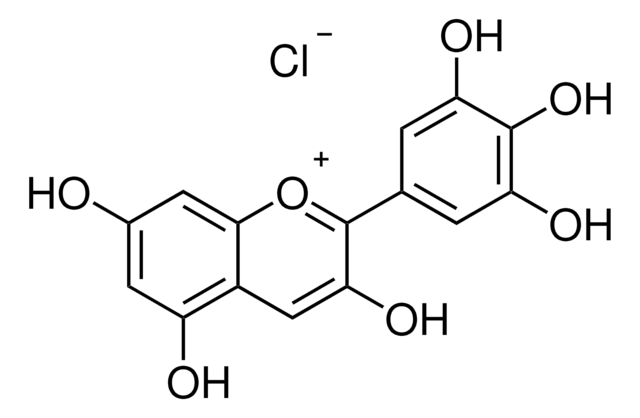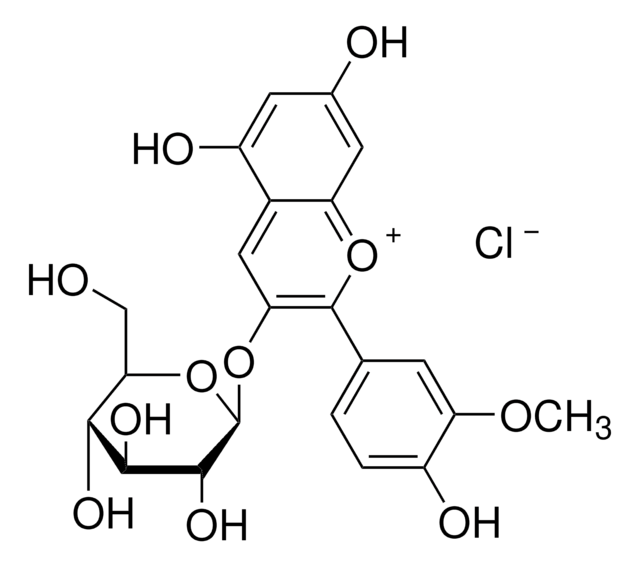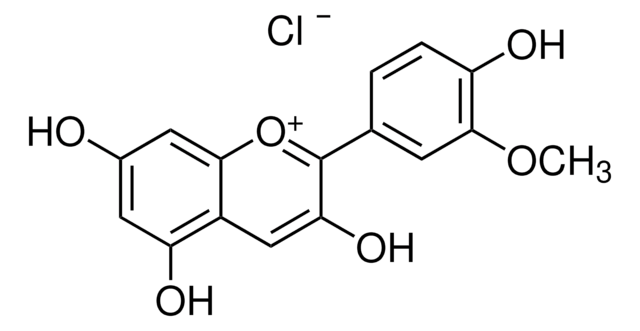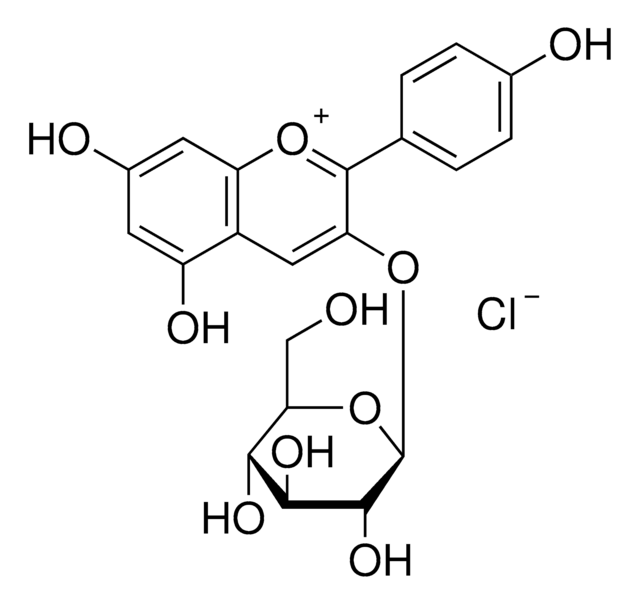40796
Peonidin 3-O-glucoside chloride
≥95% (HPLC)
Sinónimos:
3-(Glucosyloxy)-4′,5,7-trihydroxy-3′-methoxyflavylium chloride, Glucopeonidin chloride
About This Item
Productos recomendados
origen biológico
synthetic
Análisis
≥95% (HPLC)
formulario
powder
aplicaciones
metabolomics
vitamins, nutraceuticals, and natural products
temp. de almacenamiento
−20°C
cadena SMILES
[Cl-].COc1cc(ccc1O)-c2[o+]c3cc(O)cc(O)c3cc2O[C@@H]4O[C@H](CO)[C@@H](O)[C@H](O)[C@H]4O
InChI
1S/C22H22O11.ClH/c1-30-15-4-9(2-3-12(15)25)21-16(7-11-13(26)5-10(24)6-14(11)31-21)32-22-20(29)19(28)18(27)17(8-23)33-22;/h2-7,17-20,22-23,27-29H,8H2,1H3,(H2-,24,25,26);1H/t17-,18-,19+,20-,22-;/m1./s1
Clave InChI
VDTNZDSOEFSAIZ-VXZFYHBOSA-N
¿Está buscando productos similares? Visita Guía de comparación de productos
Categorías relacionadas
Descripción general
Aplicación
Acciones bioquímicas o fisiológicas
Envase
Código de clase de almacenamiento
11 - Combustible Solids
Clase de riesgo para el agua (WGK)
WGK 3
Punto de inflamabilidad (°F)
Not applicable
Punto de inflamabilidad (°C)
Not applicable
Certificados de análisis (COA)
Busque Certificados de análisis (COA) introduciendo el número de lote del producto. Los números de lote se encuentran en la etiqueta del producto después de las palabras «Lot» o «Batch»
¿Ya tiene este producto?
Encuentre la documentación para los productos que ha comprado recientemente en la Biblioteca de documentos.
Los clientes también vieron
Nuestro equipo de científicos tiene experiencia en todas las áreas de investigación: Ciencias de la vida, Ciencia de los materiales, Síntesis química, Cromatografía, Analítica y muchas otras.
Póngase en contacto con el Servicio técnico







